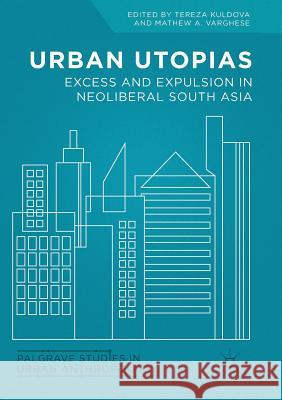Urban Utopias: Excess and Expulsion in Neoliberal South Asia » książka
topmenu
Urban Utopias: Excess and Expulsion in Neoliberal South Asia
ISBN-13: 9783319837840 / Angielski / Miękka / 2018 / 289 str.
Kategorie:
Kategorie BISAC:
Wydawca:
Palgrave MacMillan
Seria wydawnicza:
Język:
Angielski
ISBN-13:
9783319837840
Rok wydania:
2018
Wydanie:
Softcover Repri
Ilość stron:
289
Waga:
0.36 kg
Wymiary:
21.01 x 14.81 x 1.65
Oprawa:
Miękka
Wolumenów:
01
Dodatkowe informacje:
Wydanie ilustrowane











